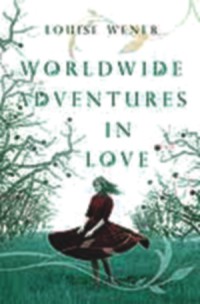|
Book Review
Of Love, Loss and Lentil stew
Stephanie Merritt
 |
Worldwide Adventures in Love
Louise Wener |
Pop singers who try their hand at writing books are usually met with a degree of cynicism (the twin spectres of Geri Halliwell and Madonna hover into view), but since Louise Wener is now on her fourth novel and her Nineties Britpop band Sleeper only made three albums, perhaps she is more properly described as a novelist who used to dabble in pop. Worldwide Adventures in Love is a coming-of-age tale narrated by 14-year-old Jessie as she tries to hold her family together in the aftermath of her parents' divorce in late-Seventies, lower-middle-class English suburbia. Shortly before the bombshell of their mother's affair explodes, Jessie and her 11-year-old sister Margaret are struck by a different kind of tragedy. Edith, the eccentric old lady who lived at the end of their street, is killed in a mysterious fire that destroys her rambling Victorian house. Jessie and Margaret had been Edith's only visitors and had loved to rummage through her treasures, collected over a lifetime of exotic travel.
What Jessie doesn't know is that before she died, Edith gave Margaret a bundle of her letters from the Thirties, which appear interspersed with Jessie's account as both stories dovetail towards a dramatic climax. The danger with split-narrative stories is always that one thread will engage the reader far more than the other and, at first, there is no contest between the vivid and painfully recognisable world of Seventies childhood, which Wener evokes with all its awkward comedy, and the stiff formality of Edith's letters. Edith, who turns out to have been one of the first female Fellows of the Royal Geographical Society, sounds like a society gal from Central Casting ('Monte Carlo is the most amusing place,' she twitters) crossed with Lawrence of Arabia, and her early letters read as if they've been cut and pasted from Scott's journals.
But it would not be giving too much away to say that Edith falls pregnant in unfortunate circumstances and her impending motherhood immediately fleshes her out as a character. Her heartfelt letters to her sister, whose unseen replies clearly demonstrate less sympathy than fear for the family reputation, express the painful conflict of a woman who must choose between duty to society's expectations and the ferocity of maternal love.
In their different ways and times, Edith and Jessie's mother are both clashing with buttoned-up societies that want to tell women how they may or may not love and when and how they are permitted to become mothers. Men are peripheral to this novel; those who do appear are either ineffectual and unaware, or just plain bounders. The love of the title is that which binds mothers, daughters and sisters: though complex, painful, fierce and tough, it will, the novel implies, outlast any so-called romance.
Wener has a nice line in dry humour (lentil stew is 'how I imagined boiled slippers might taste') and in Jessie's voice she neatly captured the half-knowing, half-naive tone of adolescence. Like many writers and comedians before her, she relies a little too much on descriptions of naff food to evoke the awfulness of the Seventies (tinned fruit cocktail, Battenburg cake, Advocaat are all name-checked). But the force of the emotional exchanges between the main female characters towards the end and the sense of loss that comes with the unravelling of Edith's death confirm Wener as a sensitive and increasingly confident novelist.
This article was first published in The Observer.
Copyright
(R) thedailystar.net 2008
|
